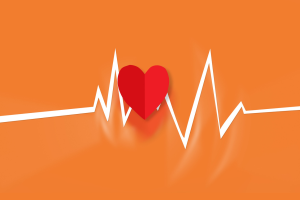Top 10 Signs You are in Ketosis

Are you wondering if you are already into ketosis? Look no further. The ketogenic diet is gaining popularity among people who want to lose weight by burning unwanted fat. Ketosis ensures that your body relies on fat for energy rather than carbohydrates. This condition is observed in people with diabetes.
Ketosis is a condition in which fats are broken down to produce energy, which also produces a type of acid known as ketones as a byproduct. When the ketone bodies accumulate in the body system beyond normal levels, you develop ketoacidosis, which is a fatal condition. People with type 1 diabetes mellitus are likely to develop ketoacidosis, which requires emergency medical treatment to avoid diabetic coma
Because you know that ketosis breaks down fats stored in the body, certain diets have been designed to create this metabolic state so as to enable weight loss. These diets are known as ketogenic diets. This diet contains high amounts of fat. In fact, 75 percent of the calories making the diet is derived from fats, with the remaining percentage of calories being derived from proteins and carbohydrates.
Adhering to ketogenic diets have very many benefits, among them being the loss of weight. For more information on the keto diet and weight loss, visit Konscious Keto.
To help get you started, here are the 10 main signs that you are in ketosis.
Weight Loss
You got it right. If you have lost weight, then there is a high probability that you are in ketosis. Ketogenic diets and diets low in carbohydrates are effective triggers of weight loss. Many weight loss studies have come to the conclusion that ketogenic diets can cause both short-term and long-term weight loss.
There is a fast weight loss in the first week of consuming high-fat diets. This weight loss is due to the depletion of the stored carbohydrates and water, even though most people usually believe that it is the stored fat that is being used.
You will continue to lose body fat after the initial rapid drop in water weight if you consistently follow the diet.
Increased ketones in the blood
Ketones are by-products of fat metabolism. During ketosis, there are increased levels of ketones in the body. The most accurate method of measuring ketosis measures your blood ketone levels using a specialized meter.
This meter measures your ketone levels by calculating the amount of Beta-hydroxybutyrate in your blood. Beta-hydroxybutyrate is one of the primary ketones present in the blood. Nutritional ketosis is defined as blood ketones ranging from 0.5-3.0 mmol/L.
To test your blood ketone levels, you will have to prick a finger to draw blood. The test kit used for this procedure is only $40. You can, therefore, perform a test each week.
Increased ketones in the breath or urine
You can find out if you are in ketosis by measuring your breath ketone levels. Acetone is one of the three main ketone bodies that are always present in your blood during ketosis. This means that your body releases more acetone during nutritional ketosis.
Breath analyzers that detect ketone bodies can be used to diagnose ketosis from your breath. Acetone levels can be measured in your breath using a breath analyzer. Konscious Keto explains in detail how to handle the change in breath due to an increased amount of ketones in the body.
You can also measure ketone body levels in your urine using special indicator strips. You can perform this test daily because it is the quickest and cheapest way of assessing your ketone body levels. However, they are not as reliable as the blood test for ketone body levels.
Short-term fatigue
One of the first observable side effects of using keratogenic diets is weakness and fatigue. It is usually one of the biggest issues that new dieters have in the first two weeks of the switch in diet.
Sadly, most people quit before they get into full ketosis and enjoy the maximum benefits of being a keratogenic dieter. You should know that this side effect is normal because your body has been used to carbohydrates for many decades as a source of fuel. A change in diet will force the body to adapt.
According to healthline.com, this feeling of weakness and fatigue is likely to occur for at most 30 days before your body adapts to full ketosis. So do not give up, because you are just a few days away from enjoying the full benefits of ketosis.
Increased focus and energy
Low-carb flu is a term that refers to the condition that people beginning a keratogenic diet experience: tiredness, feeling sick and brain fog. However, long-term dieters report increased focus and energy.
When you switch to a low-carb diet, your body has to adapt to using fats and ketone bodies as source fuel. This usually takes time because your body has been using glucose as a source of fuel for most of your life. This change can take a few days or weeks to be implemented by your metabolic systems.
Ketone bodies are extremely high in energy and have been reported to treat certain brain diseases and conditions, such as memory loss. Therefore, do not be surprised if a long-term dieter detects changes such as increased clarity and improved brain function. The stabilization of your blood sugar levels increases focus and improves brain function.
Digestive issues
Diarrhea and constipation are both side effects of using ketogenic diets. This is normal, especially for the new dieters. Any change in food usually has effects on your digestive system. Konscious Keto observes that some of these issues typically go away after a few days during the transition period.
However, you should report any long-term digestive issue because you may be allergic to certain foods, yet you are unaware. You should also eat a diet that has all the nutrients required by the body instead of focusing on high-fat content foods; you can avoid many nutritional conditions when you balance your diet.
Insomnia
Do you have sleepless nights? That is a sign that you are in ketosis. In fact, many first-time dieters experience lack of sleep in the first few weeks. Many ketogenic dieters have reported waking up in the night when they first reduce their carbohydrate intake.
However, like many other issues experienced by first-time dieters, this issue subsides after a few weeks. Konsciousketo.com provides ways to beat insomnia if you are a first-time dieter experiencing sleepless nights.
Short-term decreases in performances
Switching to ketogenic diets causes tiredness, which includes an initial reduction in performances during exercise. Fatigue comes due to a decrease in the glycogen stores in your muscles, which provide the most vital fuel sources in our body. Ketogenic dieters report their performances typically go back to normal after several weeks.
Appetite suppression
First-time ketogenic dieters report a decrease in hunger during the first weeks of switching from a high-carbohydrate diet. Many researchers say the reason for reduced appetite is increased protein and vegetable intake, together with alterations to your body’s hunger hormones.
Bad breath
Are you experiencing bad breath? Then you are in full ketosis. Bad breath is a common side effect experienced by people on ketogenic diets. Bad breath is caused by increased levels of acetone (a ketone body) that exit the body in breath and urine.
You can use sugar-free gum to solve this issue.
In conclusion
Many signs can indicate that you are already in full ketosis. If you consistently consume the ketogenic diet, then you will be able to enjoy the benefits that long-term dieters experience. You will be healthy, your focus and brain performance will be high, and your blood sugar levels will be at normal levels.






